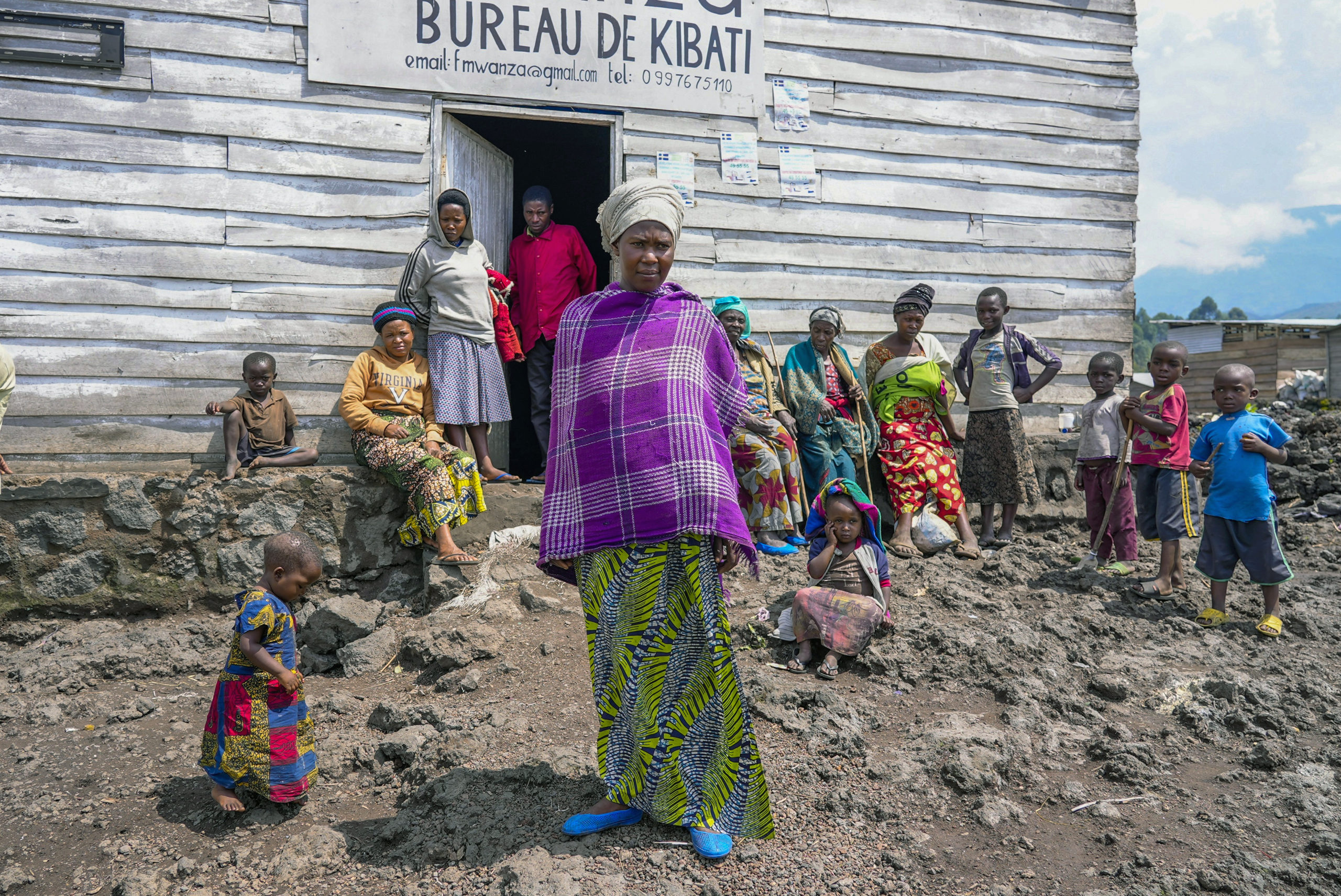 1
1 1
1
NYIRAGONGO, Congo (AP) — The last thing Pasika Bagerimana remembers before her sons died were their cries of hunger. But the 25-year-old mother had nothing to feed them.
“’Mom, I need to eat. Can you give me food?’” they pleaded with her. Daniel, 2, and Bonane, 5, died just weeks apart in July after fleeing violence in their village in eastern Congo between M23 rebels and government forces.
Bagerimana worries her remaining two children might be next. “Hunger is killing people,” she says, seated in a cramped room she now shares with dozens of other displaced people.
Hunger is soaring across parts of Congo’s war-torn North Kivu province where the fighting between M23 rebels and government soldiers has been raging since November, according to aid workers, civilians and health workers.
Despite being the most fertile region in eastern Congo, nearly 260,000 people are facing extreme food insecurity in Nyiragongo and Rutshuru territories, according to an internal draft assessment by aid groups seen by The Associated Press.
Nyiragongo has the highest prevalence of hunger in the province and Rutshuru, where the fighting is concentrated also “remains a concern,” the report said.
Congo is the No. 1 country in the world in need of food assistance, according to an unpublished draft food security report by aid agencies and the government seen by the AP. At least 26 million people — more than a quarter of the population — acutely face food insecurity in large part because of violence. Economic fallout from the COVID-19 pandemic and war in Ukraine are also making things worse.
Only 10% of those targeted by aid groups this year received the full recommended food assistance because of a lack of funds and security concerns restricting access. Humanitarians warn that if the fighting continues, millions of people could face severe hunger.
“The situation was already dire and this conflict is just adding another layer and making everything worse,” said Marc Sekpon, head of Congo’s food security coordination body, a group of international aid agencies focused on food security strategy and intervention.
“The majority of people in these territories either grow what they eat or get their food from the market,” he said. “The increase of food prices in the province and their reduced access to agricultural production seriously jeopardizes their ability to get food.”
During trips to three towns in Rutshuru and Nyiragongo in September, where nearly 200,000 people have been displaced, people told the AP how violence had forced them from their farms, leaving recently harvested food behind to rot.
Civilians said they had no land to cultivate, and they couldn’t earn enough money in town to buy food. Out of nearly 3,000 displaced families in Nyiragongo, 450 had received help, said Florence Biyoyiki the deputy president of a makeshift displacement site.
Health staff at the main hospital in Nyiragongo said the number of severely malnourished children nearly tripled between April to July — 17 to 49. A 2-year-old boy died from malnutrition in July, said Marc Lukando, a nurse at the clinic.
The hospital has nothing to feed malnourished children, he says. And when it is able to provide families with nutritional supplements, parents sometimes sell it and use the money to feed the whole family instead of giving it to their children, he said.
While the M23 rebels had been largely dormant for nearly a decade, they’ve resurfaced demonstrating increased firepower and seizing chunks of territory and have been accused by rights groups and communities of killing civilians. One person living under M23 who didn’t want to be named for fear of his safety, told the AP that the group forces residents to pay a $5 tax each time they want to access their fields. M23 fighters recently told villagers they needed to bring the group bags of beans or be evicted, he said.
Still, some people are so desperate for food they are risking their lives to return to towns under rebel control.
Chantale Dusabe fled her village in June after husband was killed by a bomb that exploded in their compound. She returned days later in spite of the risk, but has been too terrified to go back.
“I knew M23 was there, but the children were hungry,” said Dusabe, who managed to retrieve some bananas.
In a written statement to the AP, the M23 political spokesman, Lawrence Kanyuka, said people are allowed to move freely and that the accusations of human rights abuses were baseless.
The government is planning a counteroffensive to retake approximately 30% of territory that’s been captured by M23, said Luc Albert Bakole, the territorial administrator for Rutshuru.
“We must do our best to take back all the territory under the enemy’s control, so that our people can return home and resume their lives normally,” he said.
But while the government struggles to regain ground, people are starving. Doctors Without Borders said it’s seen a 50% increase in the admission of severely malnourished children in the hospital in Rutshuru town between January and July this year compared with the same period last year.
In August, Rahabu Maombi brought her malnourished daughter to Rutshuru hospital after the 22-year-old mother fled fighting in a nearby village. Since being displaced, the family eats only once a day, she said.
Cradling her 18-month-old as she feeds from a tube in her nose, Maombi says she can’t stop worrying that her daughter might die.
“If there was no war, my baby wouldn’t be in this situation,” she said. “This war has destroyed so many things in our lives.”